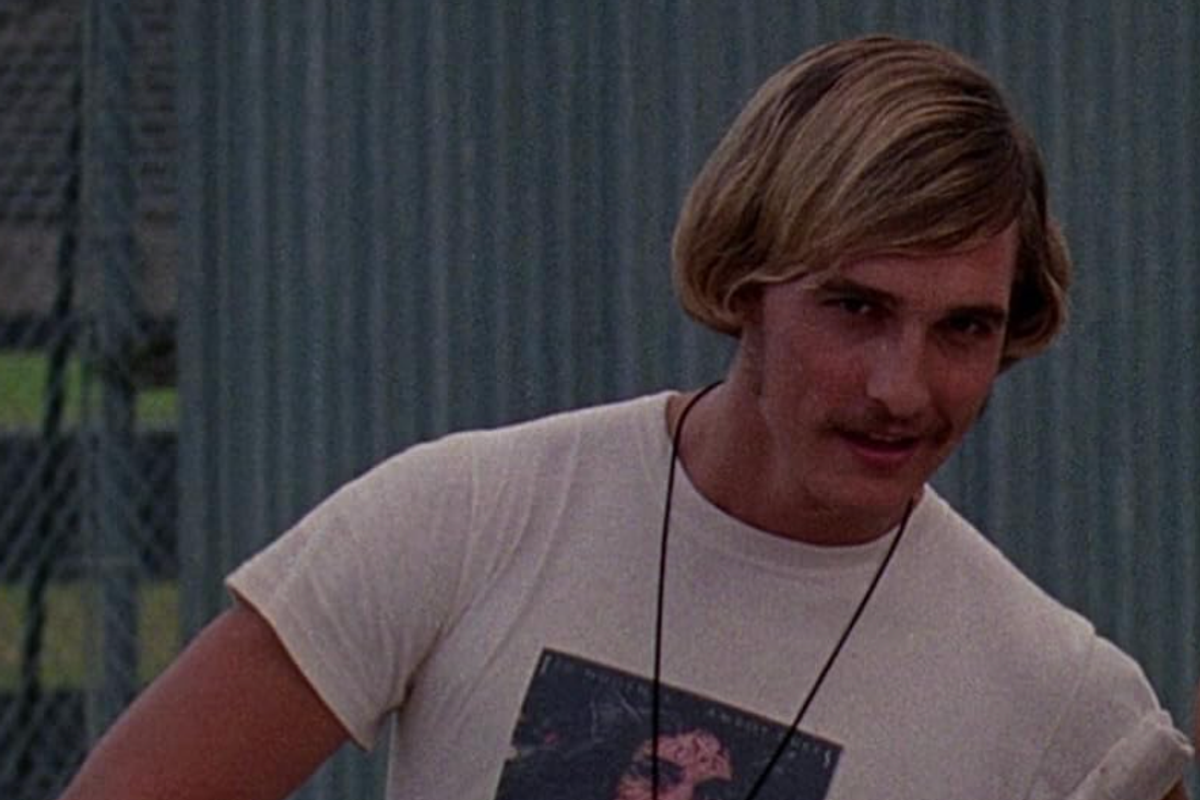This high school senior is looking ahead, and her sickle cell disease won't hold her back.
At first blush, LaTia Bell is just like any other high school senior.
She likes school, especially science, and keeps her grades up with college applications just around the corner. She just started playing tennis, and in her free time, she likes to read books and learn about sharks — her favorite animal. Like most other students in the U.S., the pressure is on to keep up, stand out, and excel as competition to gain college admission continues to grow more fierce.
What you can't see is that LaTia, despite all of her work ethic and enthusiasm, is chronically fatigued all the time.
When it's cold — and even sometimes when it's not — her entire body is wracked with pain. She misses weeks of school at a time in the hospital. Even though she strives to be like any other girl, LaTia's sickle cell disease prevents that from being possible.
All photos courtesy of LaTia Bell, used with permission.
Sickle cell disease is a blood disorder that can, to put it bluntly, make life hellish.
“It seems I always get sick around the most important dates,” LaTia says, talking about her sickle cell disease like it’s a mischievous imp rather than a painful and difficult disease. “Usually when I’m sick, I miss at least three days of school. So it is really hard.”
Sickle cell disease is a genetic disorder that prevents a person’s red blood cells from becoming flexible, round, and healthy. Instead, they become rigid and crescent-shaped, unable to carry the amount of oxygen the body needs and dying off much faster than healthy blood cells do.
The result is that chronic fatigue LaTia is constantly faced with, along with other symptoms like intense, frequent pain resulting from a lack of oxygen being delivered to key body parts, causing muscles to seize up. People young and old living with sickle cell disease are also susceptible to strokes and infections and have to take medications that can take even more of a toll on the body.
The symptoms of sickle cell disease make even mundane tasks feel like impossible feats. Last year, LaTia missed weeks of school and more than a few tennis competitions because of her sickle cell crises.
But as a patient at the Aflac Center and Blood Disorders Center of Children’s Healthcare of Atlanta, where many young people are taught to manage their sickle cell disease, LaTia has been taught to manage her symptoms. It also helps that she has a lot of optimism and drive to do what she loves.
"I don’t really let it hold me back from my dreams and what I love to do," says LaTia.
In spite of the challenges her disease causes, she has her heart set on studying biochemistry in college — knowing full well that stress is one of the primary factors that can trigger her disease and send her to the hospital.
Regardless, she's choosing to aim high. “I want to be a hematologist and a marine biologist,” she says. "I expect it to be very stressful, but I’m just ready to take it on."
LaTia also hopes that she can use her passion for learning and knowledge to someday help other people like her.
There's no cure for sickle cell disease — only developments in pain treatment that can make the disease easier to manage. But she wants to help find a cure.
"Sickle cell doesn't only affect the patients. It affects the families too," she says. "No one in the family likes to see a child suffering from such a terrible disease."
"I'm doing it for the patients and for the families."
Though her disease is beyond her control, so far, LaTia has been able to do everything she wants — it's just more of a challenge.
Supported by the Aflac Center and Blood Disorders Center, with compassionate care and patient education and counseling, she has been able to chase her dreams with confidence.
Heading into her future, she's confident in her ability to keep on accomplishing. "I feel invincible," she says.
Ultimately, she hopes that finding a cure is within her reach. "I do a lot of spreading awareness through social media and things," she says. "I want people to be aware of sickle cell and maybe help make a change."
One thing she's certain of is that she'll be one of the people helping make that change, regardless of the obstacles in her way. "Sickle cell has made me feel down a lot, but you can overcome anything," she says. "That's what I've learned — that anything can be overcome."
To learn more about sickle cell disease or the Aflac Cancer and Blood Disorders Center, visit choa.org/fightsicklecell.



 Student smiling in a classroom, working on a laptop.
Student smiling in a classroom, working on a laptop. Students focused and ready to learn in the classroom.
Students focused and ready to learn in the classroom.
 Matthew McConaughey and Shawn Andrews in Dazed and Confused (1993)Facebook
Matthew McConaughey and Shawn Andrews in Dazed and Confused (1993)Facebook 
 A UPS truck with package deliveries.Image via Wikipedia
A UPS truck with package deliveries.Image via Wikipedia
